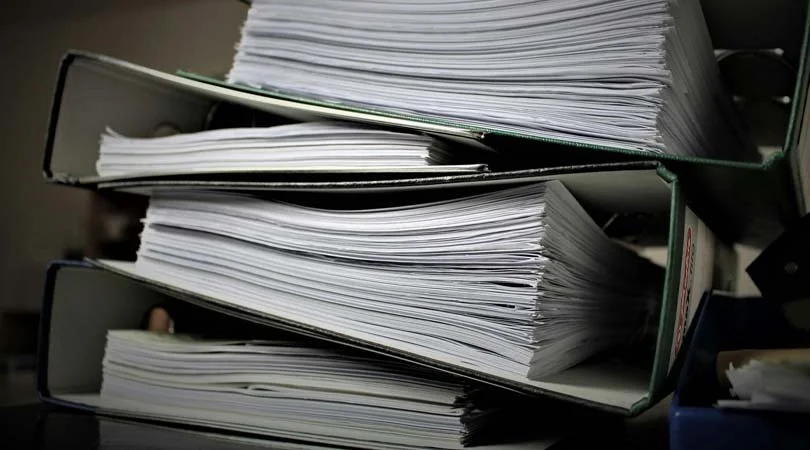7 Surprising Reasons Why Reclaiming Unclaimed Property Is Getting Harder
The Hidden Hurdles of Getting Your Own Money Back
Every year, billions of dollars in unclaimed property—including forgotten bank accounts, uncashed checks, insurance payouts, and stocks—are turned over to government agencies. While this system was originally designed to protect consumers, reclaiming your rightful assets has become increasingly difficult.
What used to be a public service has slowly turned into a bureaucratic maze, often benefiting governments more than the people owed the money. Below, we explore the major reasons why reclaiming unclaimed property is getting harder—and what you can do about it.
1. Governments Benefit Financially by Holding Your Funds
First, some governments have a vested interest in holding your funds as long as they can. Here’s why:
Unclaimed assets are absorbed into budgets and used to fund public programs.
Though technically “held in trust,” these funds often help balance government books.
The longer the claim process, the lower the chances of payout—reducing overall liabilities.
Bottom line: The harder it is to reclaim funds, the more likely governments are to retain and use them.
2. Bureaucracy Creates Barriers
Even if you know where your unclaimed assets are, claiming them isn’t easy:
Notarized documents and official translations are often required.
Ownership proof must be extensive and sometimes outdated.
Long wait times and unclear asset values deter people from completing the process.
These hurdles are enough to make many give up before they even begin.
3. Every Government Has Different Rules
In the U.S. and Canada, no national standard exists. This leads to:
Dormancy Period Differences
Vary by state/province and asset type.
Define how long an account must be inactive before being turned over.
Due Diligence Discrepancies
Companies must attempt to contact owners—but standards differ.
Some may notify you; others may not.
Reporting Timeline Variations
Dictate when assets must be transferred to the government.
Often based on location and property type, creating a complex legal landscape.
If you’ve moved or done business across jurisdictions or held funds abroad, you may have assets spread across multiple unconnected databases. For example, foreign-held unclaimed funds for Canadians are more common than one might think.
4. Shortened Dormancy Periods Leave You No Time
What used to be 5–7 years is now often just 1–3 years:
A forgotten dividend or rebate check could be escheated before a second notice arrives.
This makes even temporarily unclaimed assets much harder to retrieve later.
Once turned over, the burden shifts to you to navigate an often invisible trail.
5. Companies Make Preventable Mistakes
Sometimes it’s not you—or the government—but the companies themselves who trigger early dormancy:
Misspelled names or outdated addresses
Improper classification of accounts
Failure to send correct notices
These errors can prematurely push your assets into government hands, increasing the complexity of any recovery efforts—especially across borders.
6. Escheatment Laws Are Complex and Inconsistent
The concept of “escheatment”—where governments take custody of unclaimed property—varies widely:
In some regions, assets can be claimed indefinitely.
In others, statutes of limitation may apply, after which the funds can no longer be recovered.
Knowing your legal rights based on jurisdiction is essential—but not always easy to determine.
7. Lack of Transparency Compounds the Problem
In many cases:
Governments do not disclose complete asset details.
Public portals provide limited information, especially for international owners.
In some jurisdictions, search tools are fragmented across departments and databases.
This makes it incredibly hard to know:
If you’re owed money
Where it’s held
How much is available
How AssetFynd Can Help
Reclaiming unclaimed property doesn’t have to be a solo mission. At AssetFynd, we:
Navigate cross-jurisdictional laws
Overcome bureaucratic roadblocks
Use advanced tools and human expertise to find what’s yours
Whether it’s a forgotten check or an overlooked investment, we ensure that you get back what belongs to you.
Ready to Start Your Search?
Contact us today to begin the process.
Don’t let red tape stand between you and your money.
FAQs
-
Shortened dormancy periods, legal inconsistencies, and bureaucratic systems have made recovery far more complex.
-
In some cases, yes—especially if you don’t claim it in time. Others may hold it “in trust” but make the claim process hard.
-
No. Every jurisdiction has unique laws for dormancy, reporting, and due diligence—making cross-border claims harder.
-
Yes. Typos, misclassifications, and outdated records are a major cause of escheated funds.
-
Work with a recovery expert like AssetFynd, especially if the money is spread across multiple jurisdictions.
-
It varies by jurisdiction, asset type, and complexity. AssetFynd helps speed up this process significantly.

